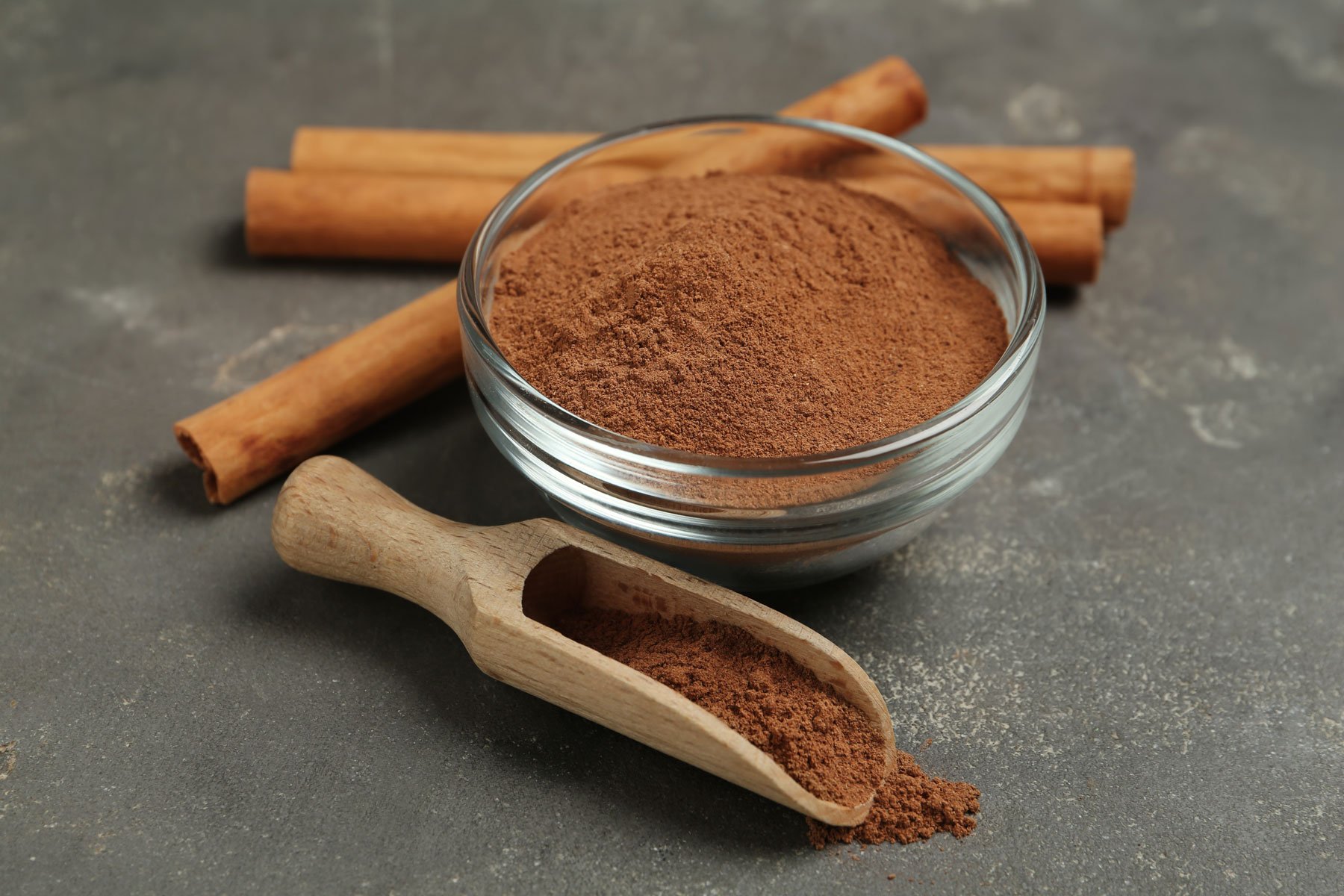It’s easy to get confused about whether coffee is good or bad for you. First, it’s helpful to acknowledge that discussions about coffee are often discussions about caffeine since only about 10% of U.S. coffee drinkers choose decaf. And while we know caffeine is a stimulant, individual responses to its stimulatory impact and subsequent side effects vary considerably, due in part to our genetics. We can often feel caffeine’s effects within 15 minutes, but it can remain in our body for up to 10 hours. The liver mostly breaks it down, but it can interact with multiple systems, including the brain, the cardiovascular system, the respiratory system, and the kidneys. Even its impact on athletic performance varies among individuals.
But if we zoom out to look at coffee and not just caffeine, it perfectly illustrates the difference between short-term and long-term effects. Decades-long epidemiological studies find pretty consistently that drinking coffee lowers the risk of developing Type 2 diabetes. On the other hand, you may read headlines saying that a cup of coffee raises your blood glucose level. You might have experienced this first hand. And most studies of caffeine’s short-term effects show that it reduces insulin sensitivity. Coffee’s long-term benefits seem to stem from other compounds in the brew and are ultimately more potent than the immediate effects of its caffeine component.
Here’s a look at the two sides of coffee.
The Short Term: Caffeine Reduces Insulin Sensitivity
Since coffee on its own (no sugar, no dairy) doesn’t contain carbohydrates, simply drinking a cup shouldn’t raise glucose levels. To test its effect on glucose metabolism, researchers typically ask study participants to consume either caffeine or coffee with a meal or an oral glucose tolerance test (in which people drink a high-glucose beverage) and then monitor their insulin and glucose levels. What they’ve found is that insulin and glucose levels tend to rise. That suggests that caffeine causes a decrease in insulin sensitivity since the elevated insulin isn’t bringing down the glucose increase from the ingested carbs. In other words, caffeine seems to impair insulin’s effectiveness. Research has shown that insulin sensitivity drops in response to a single dose of caffeine following 72 hours of caffeine avoidance. It also drops after high coffee consumption over four weeks, suggesting the body does not build a tolerance to caffeine’s effect on insulin over time.
Research shows the same effects in people with Type 2 diabetes, but the impact may last longer given their existing metabolic impairment. One study at Duke University looked at how consuming the caffeine equivalent of about five cups of coffee—half at breakfast, half at lunch—impacted participants’ glucose levels throughout the day. It found that caffeine raised their glucose responses to breakfast, lunch, and dinner, as well as causing an increase in their overall average glucose for the day.
Similarly, a study in women with gestational diabetes showed that even doses below the recommended safe amount of caffeine for pregnant women (200 mg, or about two cups) led to a short-term decrease in insulin sensitivity.
There’s increasing evidence that genetics play a role in how different people process caffeine, too. Researchers refer to “fast metabolizers” and “slow metabolizers,” who show differences in how caffeine affects their glucose and insulin levels. A study published at the end of 2020 looked at the effects of caffeine energy shot drinks in adolescents. It found that not only did the drinks disrupt teens’ glucose metabolism and insulin sensitivity, there were also significant differences among the subjects that seemed to correlate with genetic differences. Those who metabolized caffeine the quickest had the poorest glucose and insulin responses. Earlier research theorized that people who clear caffeine rapidly never get a chance to build their caffeine tolerance, but there’s still no consensus on whether people even can build a tolerance to all of caffeine’s effects in the body.
As for decaf, some studies show that it causes the same decrease in insulin sensitivity that regular coffee does, but to a lesser degree. Researchers suggest that may be because even decaf usually has traces of caffeine.
Why Caffeine Impacts Glucose and Insulin
But why does caffeine impair glucose metabolism? Caffeine stimulates the central nervous system by blocking the action of adenosine, a metabolite that helps regulate our energy levels.
In the brain, adenosine acts as a neurotransmitter and promotes restful sleep by tamping down the activity of neurostimulators like dopamine. Caffeine can bind to adenosine receptors in the brain, preventing adenosine from binding at those sites and curbing its ability to inhibit dopamine. The effect: we feel more alert. Scientists have found genetic variation in those adenosine receptors among different people, which may explain why individual responses to caffeine vary.
The reason adenosine affects glucose is that in addition to the brain, there are adenosine receptors throughout the body, including in adipose (fat) tissue and muscle tissue—both sites where insulin facilitates glucose uptake—as well as in the liver, which controls the production of glucose and release of stored glucose. Scientists still aren’t precisely sure which adenosine receptors play the most crucial role in modifying glucose uptake and insulin sensitivity. But a recent animal study suggests its effect on muscle tissue uptake exerts the most significant influence. Either way, multiple studies demonstrate that restricting the action of adenosine, as caffeine has been shown to do, decreases insulin sensitivity.
“If caffeine’s negative short-term effect on glucose metabolism is well established, so is coffee’s desirable impact on the risk of Type 2 diabetes.”
In addition, when the liver metabolizes caffeine, most of it is broken down into a metabolite called paraxanthine, which studies show is also a potent inhibitor of adenosine. This may account for the fact that caffeine’s effects on insulin can last longer than its short half-life in the body would suggest.
Caffeine also increases the amount of epinephrine (aka adrenaline) circulating in the blood, which accounts for part of the energy boost you feel after imbibing. Epinephrine is also known to cause insulin resistance, impair glucose control, and trigger glucose production. However, studies have shown that in the small amounts triggered by caffeine, epinephrine’s impact on glucose is probably too low to be responsible for caffeine’s effects.
The Long Term: Drinking Coffee Lowers Type 2 Diabetes Risk
If caffeine’s negative short-term effect on glucose metabolism is well established, so is coffee’s desirable impact on the risk of Type 2 diabetes. That coffee lowers one’s risk of developing diabetes has been confirmed in multiple reviews, as well as in large population studies.
One study, which followed nearly 1900 adult men and women for a median duration of 5.8 years, found that adults who consumed at least one cup of coffee per week had a 22% lower risk for prediabetes and 34% risk reduction for Type 2 diabetes compared to people who didn’t drink coffee. Another study, which followed around 88,000 women in the US with no history of diabetes, found that both regular and decaf coffee consumption for eight years seemed to lower the risk of developing Type 2 diabetes, with regular coffee offering a slight edge over decaf. Drinking more cups was associated with lower risk—women who drank one cup per day saw a 13% reduction in relative risk, while women who drank four or more cups saw a 47% reduction.
That decaf demonstrates nearly the same benefits as regular coffee suggests that something other than caffeine is driving the protective effect. The most likely candidate is chlorogenic acids, members of a group of antioxidant-rich micronutrients called polyphenols, abundant in plant-based foods.
Studies of chlorogenic acids and their derivatives suggest that they play a significant role in glucose and lipid metabolism and may effectively combat diabetes, metabolic syndrome, and high blood concentrations of fats, including cholesterol. Researchers have even investigated them as a source of new treatments for Type 2 diabetes.
Chlorogenic acids may improve glucose metabolism in several ways, according to studies in animals and cell lines:
- Inhibiting G6Pase, a protein that regulates glucose production in the liver and its release into the blood.
- Reducing intestinal absorption of glucose
- Stimulating glucose uptake by fat and muscle tissues
- Providing antioxidant and anti-inflammatory protection
- Improving insulin sensitivity in peripheral tissue
In short, the positive impacts of chlorogenic acids on glucose metabolism outweigh the adverse effects of caffeine. While caffeine may decrease insulin sensitivity in the short term, which could increase the typical post-meal glucose spike, the multiple actions of chlorogenic acids in coffee appear to reduce the total glucose impact from that meal, as well as provide long-term benefits like protection against oxidative stress and inflammation, which can contribute to Type 2 diabetes.
A 2006 randomized, double-blind study seemed to back up this idea. It compared the metabolic responses of participants given either decaf coffee, regular coffee, a caffeine capsule, or a placebo, followed by an oral glucose tolerance test. It found a 50% lower glucose response in the decaf group compared to the placebo group, and a 40% lower response in the regular coffee group compared to the pure caffeine group. Since all participants ingested the same amount of glucose, these results suggest there are compounds in coffee that either slow glucose absorption or increase glucose uptake in bodily tissues.
Coffee Alternatives
Not a coffee fan? A 2020 meta-analysis found that taking a supplement with 400 mg or more of green coffee bean extract positively affected both fasting blood sugar and insulin levels.
Green tea may also confer metabolic benefits due to polyphenols—not chlorogenic acids this time, but antioxidant compounds called catechins, which may also regulate glucose uptake in the gut. One study found that people with Type 2 diabetes who drank four cups of green tea a day for two months experienced significant weight reduction, waist circumference, and systolic blood pressure. What’s more, the anti-diabetic effects of polyphenols found in green tea, including improved glucose tolerance, have been supported by studies in animals and humans.
So What Should You Do?
- If caffeine is part of your current routine, either in your morning coffee or before a workout, be aware that it is likely decreasing your acute insulin sensitivity. Try not to pair it with high-carb meals.
- Given that the apparent benefits of long-term coffee consumption appear to outweigh the short-term effects (at least on glucose metabolism), you probably don’t need to cut it out.
- Switching to decaf appears to offer many of the same benefits but with a lesser short-term effect than regular coffee.
- If you’re not a coffee person, don’t start drinking coffee just for the long-term metabolic benefits. You can get the same beneficial chlorogenic acids through several fruits and vegetables, including apples, artichokes, carrots, and tomatoes. Drinking green tea also appears to have long-term positive effects.
- Remember to avoid adding sugar or artificial sweeteners to your coffee, and skip the sugary energy drinks.








